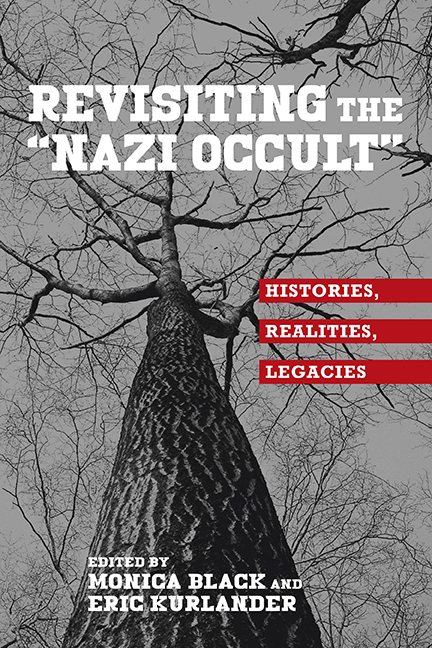5 - Pseudoscience Reconsidered: SS Research and the Archaeology of Haithabu
Published online by Cambridge University Press: 10 June 2021
Summary
Introduction: “Pseudoscience” in Nazi Germany
ALONG WITH NOTIONS OF ESOTERICISM, scholars have frequently employed the concept of “pseudoscience” to describe forms of knowledge production in Nazi Germany. Indeed, these two concepts overlap in important ways. Both refer to approaches that contemporaries regarded as legitimate pathways to understanding concepts of Volk and Rasse, but that postwar scholars have since interpreted as evidence of the irrationality of Nazi ideology. Moreover, both implicated a wide range of pursuits that historians now characterize as unscientific. But where practitioners of esotericism often valued it as a form of “antiscience” with a focus on deriving knowledge from a nonmaterial realm, scientists used the term pseudoscience pejoratively to describe any approach falsely claiming scientific authority through a nominal or flawed engagement with empirical methods. In practice, of course, these distinctions are not always easy to draw, and the overlapping valency between such esoteric fields as parapsychology or dowsing and putatively pseudoscientific praxis in the Third Reich raise questions about the ways in which culture, politics, and social convention have historically played a role in determining what science is and which approaches are acceptable or unacceptable. They reveal, as Michael Gordin has convincingly shown, how the term pseudoscience, rather than simply reflecting a simple assessment of adherence to scientific norms, has in effect been used at certain times in targeted ways, for selfserving ends and against specific enemies.
Such was the case in the postwar era, when pseudoscience became a convenient label for scholarly research conducted by Nazi organizations. Historians assumed that it was possible to draw clear boundaries between the false approaches of “Nazi science” and the “objective” tools of “real science.” Such a view suggested that the regime had either permitted research outside the boundaries of normal scholarship or had otherwise pressured scholars and manipulated findings. In any case, the notion of pseudoscience made it possible not only to restore confidence in the reliability of scientific knowledge in Germany but also to rehabilitate the reputations of German scholars who were active during the years of the Third Reich.
Today we know better. Recent studies have shown that many reputable scholars in the sciences and humanities participated in one way or another with Nazi organizations or otherwise assisted in the pursuit of Nazi goals.
- Type
- Chapter
- Information
- Revisiting the "Nazi Occult"Histories, Realities, Legacies, pp. 105 - 131Publisher: Boydell & BrewerPrint publication year: 2015
- 1
- Cited by

